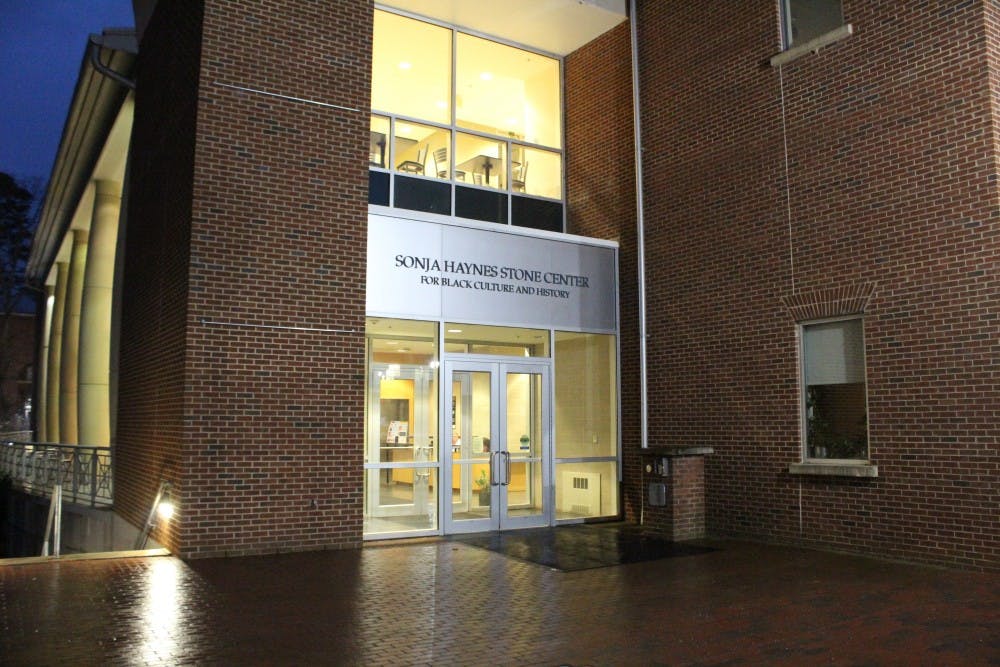“I think it just offers a really, really strong introduction to understanding race in the United States,” Schroder said.
AAAD 298: Blacks in British North America to 1833
MW - (5:45 p.m. - 7:00 p.m.)
Gen Eds - NA, WB
This three-credit-hour course looks at Black people in the British world until 1833, focusing on the 13 colonies and what would become Canada, according to the UNC course catalog.
Cinthia Ogbaugo, a 2020 graduate who majored in popular culture and design in a globalizing world, took many courses in the Department of African, African American and Diaspora Studies for her African Studies minor and suggested this one because it focused on North Carolina.
“Robert Porter's also one of those professors that on Rate My Professor, some people are like, ‘He wants too much of you,’” said Ogbaugo. “If you're actually taking it because you want to learn more, and not just because you think that you're going to get an easy credit, then it feels like it's worth it.”
AAAD 250: The African American in Motion Pictures: 1900 to the Present
T - (3:30 p.m. - 6:20 p.m.)
Gen Ed - VP
This three-credit-hour course discusses the stereotypical portrayal of Black people in motion pictures and the development of these portrayals over time, according to the UNC course catalog.
Faith Jones, who is graduating this summer with a major in music, took the class in spring 2020 and said the class focused on film theory and Black actors, actresses and directors from the century.
To get the day's news and headlines in your inbox each morning, sign up for our email newsletters.
“Charlene Regester is such an underrated professor at the University,” said Jones. “She's funny, her lectures are long and detailed and she has very deep, handwritten notes that just show you how much she knows about it.”
ANTH 147: Comparative Healing Systems
TTh - (2:00 p.m. - 3:15 p.m.)
Gen Eds - SS, GL
This three-credit-hour course compares a variety of healing beliefs and practices to help students better comprehend their society, culture and medical systems, according to the UNC course catalog.
Michele Rivkin-Fish, associate professor at the department of anthropology, has been teaching this class since she started at UNC in 2007. She said the course focuses on the ideas behind how cultures think about what makes a person healthy.
“If we want to end racism, then we need to change the systems in which we provide services and provide opportunities, and this class, actually, like most of anthropology, really takes a systems approach,” said Rivkin-Fish. “It looks at how particular experiences such as health or health care are embedded in broader political economic relationships.”
SOCI 469: Health and Society
TTh - (11:00 a.m. - 12:15 p.m.)
Gen Ed - SS
This three-credit-hour course explains how social arrangements can affect the types and distribution of diseases across a society as well as the promotion of different disease prevention tactics, according to the UNC course catalog.
Sarah Moore, a 2020 graduate who majored in political science and history, said the class covered health from a social and behavioral perspective, as opposed to strictly a scientific perspective. Moore said the class started with basic theoretical information about racism and sexism, and as the semester continued, students applied those concepts to how they affect people's health.
“I think for me, the biggest misconception I had about health going into it was that it's all about your individual behavior and the choices you make,” said Moore. “Learning about the social determinants and systematic ways that impact people's health, was eye-opening for me.”
Collective Class List
- AAAD 333: Race and Public Policy in the United States
- AMST 248: Intersectionality: Race, Gender, Sexuality and Social Justice
- AMST 278: Crimes and Punishments
- ANTH 319: Global Health
- COMM 576: Making and Manipulating "Race" in the United States
- EDUC 533: Social Justice in Education
- EDUC 575: Teaching to Transform Society I
- ENGL 129: Literature and Cultural Diversity
- ENGL 143: Film and Culture
- ENGL 265: Literature and Race, Literature and Ethnicity
- GEOG 232: Agriculture, Food and Society
- GLBL 383: Global Whiteness
- GSLL 70: First-Year Seminar: Teenage Kicks: Race, Class, and Gender in Postwar Youth Cultures
- GSLL 280: The Dialectic of Whiteness and Blackness in Atlantic Cultures
- HIST 278: The Trans-Atlantic Slave Trade
- HIST 585: Race, Basketball and the American Dream
- MEJO 442: Gender, Class, Race and Mass Media
- PHIL 274: Race, Racism and Social Justice: African-American Political Philosophy
- POLI 203: Race, Innocence and the Decline of the Death Penalty
- POLI 429: Diversity and Politics
- PLCY 231: Why History Matters to Public Policy
- PLCY 354: The Lived Experience of Inequality and Public Policy
- PLCY 570: Health and Human Rights
- PSYC 565: Stereotyping, Prejudice and Discrimination
- SOCI 64: First-Year Seminar: Equality of Educational Opportunity Then and Now
- SOCI 101: Sociological Perspectives
- SOCI 172: Introduction to Population Health in the United States
- SOCI 412: Social Stratification
- SOCI 444: Race, Class and Gender
university@dailytarheel.com
Emma GeisEmma Geis is the 2023-24 copy chief at The Daily Tar Heel. She has previously served as a copy board member and summer copy chief. Emma is a fifth-year pursuing a double major in journalism and media and African, African American and Diaspora Studies.



